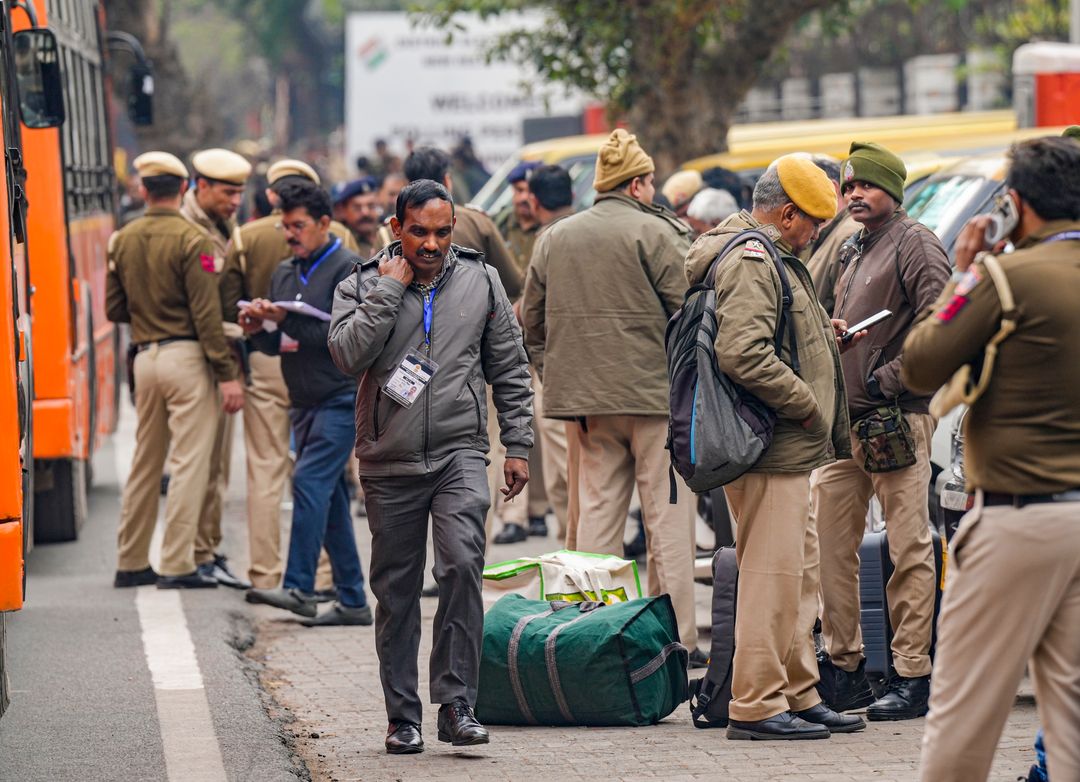
New Delhi, Feb 4 – The stage is set for a crucial faceoff in Delhi’s high-stakes Assembly elections, with over 1.56 crore eligible voters gearing up to cast their ballots. The election, which kicks off at 7 am on Wednesday, will see the Aam Aadmi Party (AAP) aiming for a third consecutive term, while both the Bharatiya Janata Party (BJP) and the Congress are determined to make significant comebacks.
The fate of 699 candidates will be decided across 13,766 polling stations spread across all 70 Assembly constituencies in the capital. The AAP, under the leadership of Arvind Kejriwal, is confident of retaining power, focusing on its record of governance and welfare schemes.
Meanwhile, the BJP, which has not held power in Delhi for over 25 years, is making a strong push to reclaim the city. The Congress, which ruled the capital for 15 years until 2013, is hoping to revive its fortunes after failing to win a single seat in the past two elections.
The Election Commission has put in place stringent security arrangements to ensure peaceful polling. Over 220 companies of paramilitary forces, 35,626 Delhi Police personnel, and 19,000 home guards have been deployed for the election. Special measures, including drone surveillance, will be in place for nearly 3,000 polling booths identified as sensitive. Additionally, Quick Reaction Teams (QRTs) will be stationed at these locations to maintain order.
For the convenience of voters, especially senior citizens and persons with disabilities, the Election Commission has made 733 polling stations fully accessible. A new Queue Management System (QMS) app has also been introduced to provide real-time crowd updates, ensuring a smoother voting process.
As of now, 6,980 out of 7,553 eligible home voters have already cast their ballots, reflecting a strong early interest in the election.
The intense campaigning period, which officially concluded at 6 pm on Monday, saw fierce competition among the three main political parties. The AAP campaigned on its governance achievements, with Kejriwal and Chief Minister Atishi leading rallies across Delhi. The BJP, led by Prime Minister Narendra Modi, Home Minister Amit Shah, and party president JP Nadda, mounted a vigorous campaign, accusing AAP of corruption and mismanagement, particularly on law and order issues.
The Congress, led by Rahul Gandhi and Priyanka Gandhi, sought to challenge both AAP and the BJP, focusing on issues such as governance, law and order, and women’s welfare. The discourse became heated, with aggressive name-calling, AI-generated spoofs, and debates over matters like the "Sheesh Mahal" controversy, the Yamuna's water quality, and allegations of voter list manipulation.
The pre-election promises have largely focused on welfare schemes. AAP has pledged free bus rides for students, insurance for auto and taxi drivers, and monthly financial aid of Rs 18,000 for temple priests and gurdwara granthis. The BJP has promised Rs 21,000 in financial assistance for pregnant women and subsidized cooking gas cylinders at Rs 500. The Congress, meanwhile, has vowed to provide a monthly unemployment benefit of Rs 8,500.
The outcome of the elections, set for February 8, will determine whether AAP secures its third consecutive term, the BJP breaks its long losing streak, or the Congress manages a surprise comeback.
Voter turnout is expected to be a decisive factor in this closely contested race, and all eyes will be on Delhi’s electorate as they head to the polls.
In a dramatic turn, a day before the elections, Delhi Police filed an FIR against Atishi, the AAP candidate from Kalkaji, for allegedly violating the Model Code of Conduct (MCC) and obstructing public servants. The incident, which occurred at Fateh Singh Marg, also saw two AAP supporters reportedly assaulting a police constable, further intensifying the already charged political atmosphere.
